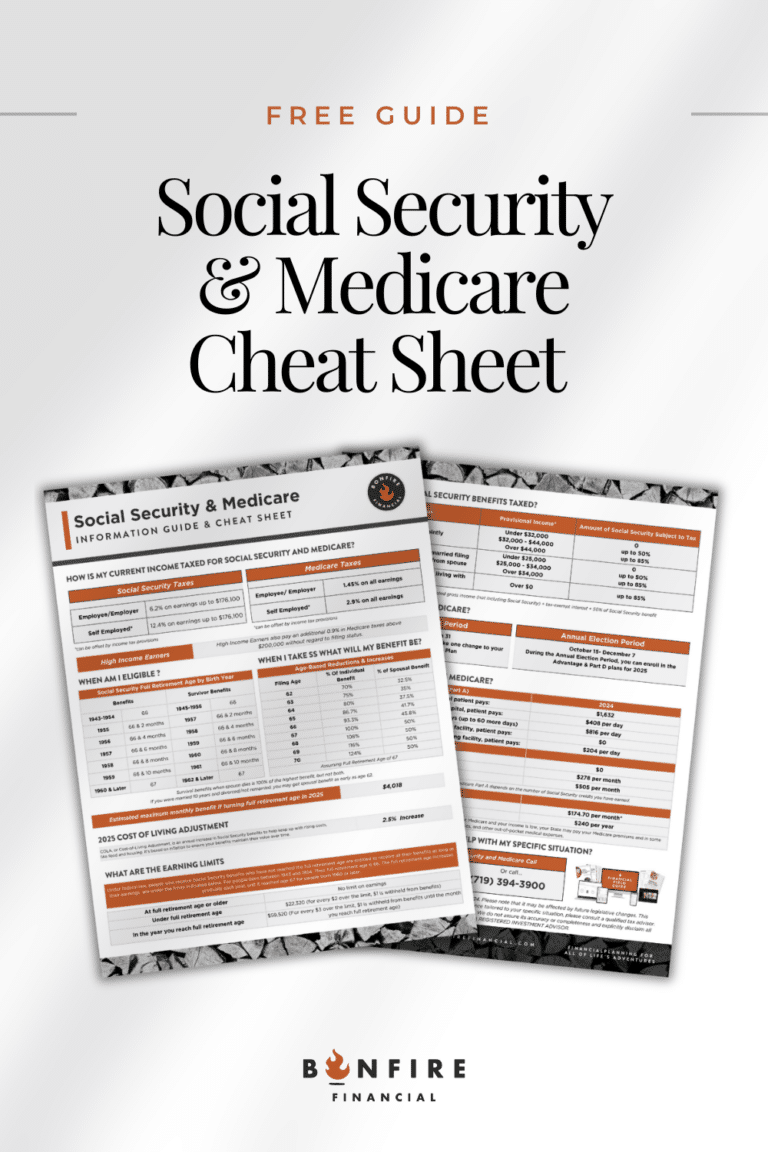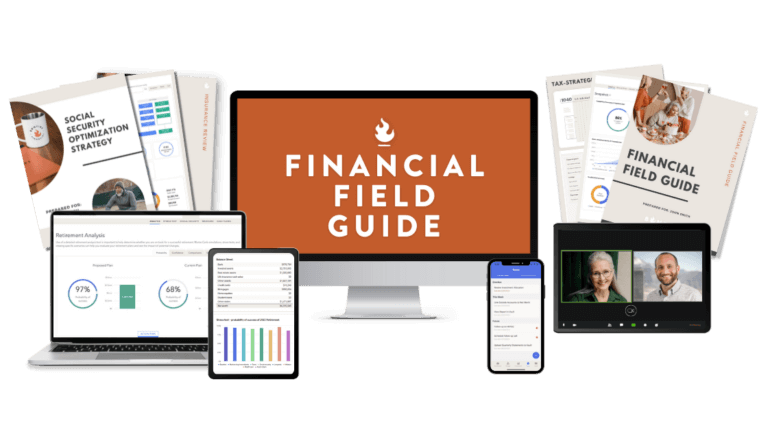The FIRE movement (Financial Independence, Retire Early) gained popularity in recent years, especially among millennials and Gen Z. With promises of retiring in your 30s or 40s, the concept seems appealing. Who wouldn’t want to escape the daily grind and achieve financial freedom early in life? However, as alluring as the idea may sound, the reality of the FIRE movement isn’t as straightforward or as fulfilling as many think. In this post, we’ll dive into why the FIRE movement might not be the best path to true financial freedom and offer a balanced approach to achieving financial independence while still enjoying life now.
Listen anywhere you stream Podcasts
iTunes | Spotify | iHeartRadio | Amazon Music
What is the FIRE Movement
The roots of the FIRE movement can be traced back to Vicki Robin and Joe Dominguez, who wrote the book Your Money or Your Life in 1992. Robin and Dominguez. While the idea originated in the early ’90s, it took more than two decades to catch on with people looking for alternatives to the traditional retirement timeline.
At its core, the FIRE movement revolves around living a life of extreme frugality, saving a large portion of your income—often 50% or more—and investing wisely so that you can retire decades earlier than the traditional retirement age. The goal is to accumulate enough assets that the income generated from those assets covers your living expenses indefinitely. This concept, while well-intentioned, has a few glaring issues.
The Five Levels of Financial Independence
Before diving into the criticisms of the FIRE movement, it’s essential to understand the different levels of financial independence:
- Basic Needs Coverage: This is the first level, where your income and assets are sufficient to cover your basic needs, such as housing, food, and utilities. You also have a buffer in case of emergencies, allowing you to survive without income for three to six months.
- Needs and Wants Coverage: At this level, your income and assets cover both your basic needs and your desires, such as traveling, hobbies, and occasional luxuries.
- Abundance: Here, your income and assets provide more than what you need or want, allowing for substantial savings and investments. There’s a sense of financial comfort, knowing you have more than enough.
- Asset-Based Security: This level means that your assets alone, without needing a job, can cover your basic needs. You might not have all your desires met, but you’re financially secure.
- Complete Financial Freedom: The pinnacle of financial independence, where your assets are more than enough to cover all your needs and wants. At this stage, work becomes a choice rather than a necessity.
The Problem with the FIRE Movement:
Living for Tomorrow at the Cost of Today
While the idea of reaching the highest levels of financial independence early is appealing, the way the FIRE movement advocates achieving this can be problematic. Here are some of the critical concerns:
- Extreme Frugality Isn’t Sustainable or Enjoyable: Many FIRE movement advocates emphasize a lifestyle of extreme frugality. This often includes measures like living on a shoestring budget, renting out rooms in your house, avoiding travel, or even subsisting on inexpensive, unhealthy, cheap food options. While these sacrifices might help you save money, they come at the cost of enjoying your life in the present. The constant focus on penny-pinching can make life feel restrictive and joyless.
- Postponing Life’s Pleasures: The FIRE movement philosophy often entails putting off enjoyable experiences until after retirement. Whether it’s traveling, dining out, or pursuing hobbies, the movement suggests delaying these pleasures to save more money now. But what if tomorrow never comes? Life is unpredictable, and postponing happiness for a future that isn’t guaranteed can lead to regrets.
- You’re Still Working, Just in a Different Form: Many FIRE followers don’t truly retire. Instead, they often turn to side gigs, freelancing, or becoming influencers to maintain their financial independence. In essence, they shift from traditional employment to other forms of work, which raises the question: are they genuinely retired, or just working in a different capacity?
- Potential Regrets and Missed Opportunities: As financial planners, we’ve seen clients who regret not taking vacations, not spending quality time with loved ones, or not pursuing passions because they were too focused on saving every penny. These missed opportunities for joy and connection can lead to dissatisfaction and regret later in life.
A Balanced Approach to Financial Independence
Financial independence is a worthy goal, but it shouldn’t come at the expense of your present happiness. Here’s how you can work towards financial freedom while still living a fulfilling life:
- Find the Right Balance: Instead of aiming to save 50% or more of your income, find a savings rate that allows you to progress toward your financial goals while still enjoying life now. A more moderate savings rate can still lead to substantial growth over time, especially with consistent, wise investing.
- Prioritize Experiences That Matter to You: Spend money on what brings you genuine joy and value. If you love traveling, set aside money for it. If fine dining is your passion, indulge occasionally. The key is to know what truly makes you happy and allocate resources accordingly. It’s not about living lavishly but living meaningfully.
- Save with Purpose, Not Deprivation: Financial independence doesn’t mean living in deprivation. It’s about making conscious choices. Adopt the mindset of saving for the things that matter most to you, not just for the sake of saving. This perspective shifts your financial strategy from one of sacrifice to one of purpose.
- Invest in Experiences, Not Just Assets: While building your asset base is crucial, don’t forget to invest in experiences that enrich your life. Whether it’s spending time with loved ones, exploring new places, or learning new skills, these experiences create memories and personal growth that money alone can’t buy.
- Remember the Importance of Flexibility: Life is full of changes and uncertainties. Your financial plan should be adaptable. If an opportunity arises that excites you—like a spontaneous trip or a new hobby—don’t feel guilty about seizing it. Flexibility allows you to enjoy life’s moments without derailing your long-term goals.
- Work Should Be Enjoyable, Not Just a Means to an End: If you find yourself in a job you hate just to save for early retirement, consider finding work that you enjoy. Financial independence shouldn’t be about escaping a miserable job; it should be about having the freedom to pursue work that you find fulfilling.
The Role of a Financial Planner
Navigating the path to financial independence can be complex, and having a guide can make a significant difference. A CERTIFIED FINANCIAL PLANNER™ can help you:
- Create a Personalized Plan: A good financial planner will consider your unique circumstances, goals, and values, helping you develop a financial plan that balances saving with living.
- Adjust as Life Changes: As your life evolves, so should your financial plan. A planner can help you adjust your strategy to accommodate new goals, opportunities, or challenges.
- Avoid Common Pitfalls: Financial planners can provide guidance that helps you avoid the common mistakes of extreme frugality or overspending, ensuring a balanced approach to your financial independence journey.
Conclusion: Financial Independence Without Sacrifice
The FIRE movement has undoubtedly brought valuable conversations about financial independence to the forefront. However, the notion that you must sacrifice your present happiness for a future that isn’t guaranteed is flawed. True financial freedom comes from balancing smart saving and investing with living a life full of joy, experiences, and meaning.
You don’t need to live off ramen or delay your dreams to achieve financial independence. Instead, you can craft a financial plan that lets you enjoy today while still preparing for tomorrow. After all, life is too short not to be lived to its fullest.
Next Steps
If you’re ready to find a balanced approach to financial independence that suits your lifestyle and goals, we’re here to help. Contact us at today to start your journey toward a fulfilling and financially secure future.
 Client Login
Client Login







